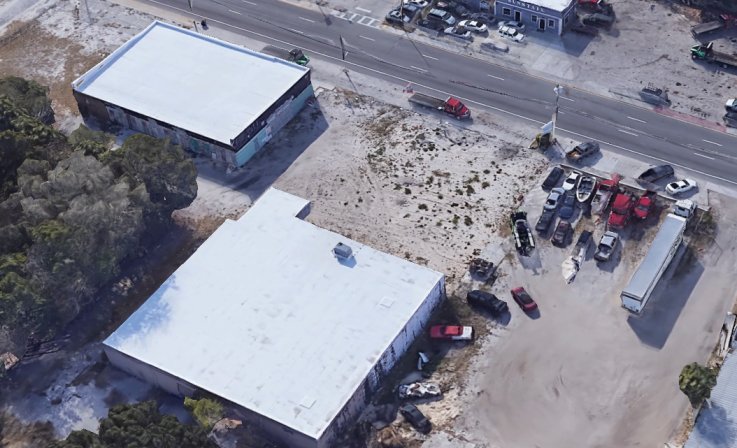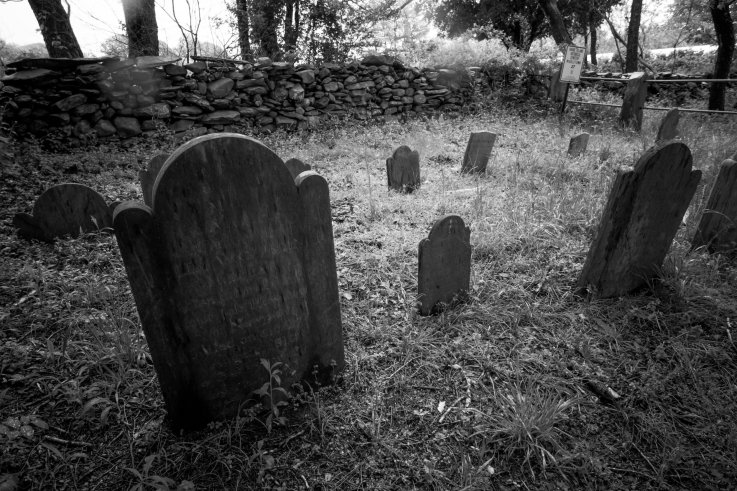The Columbia Restaurant Group, which purchased the plot of land on Florida Avenue in Tampa in 2016, immediately halted any further production in the area following the discovery of the possible graves from the Zion Cemetery, believed to be the first black burial ground to exist in Tampa.
Instead, the group are hoping for a land swap or sale which would permanently ensure the protection and preservation of the cemetery.
"We said from the beginning that we would do the right thing," Richard Gonzmart, president of the Columbia Restaurant Group said in a statement. "And this is the right thing. Let them rest in peace."
The group's decision to halt all development on the land where the graves were discovered has been praised.
"I'm very pleased with this quick decision by the Columbia Restaurant Group," said Yvette Lewis, Hillsborough branch president of the NACCP. "It's clear everyone wants the same thing: For this cemetery to be preserved and memorialized."
The Zion Cemetery was believed to have been founded in 1901. The cemetery has since been built over and was erased from all city maps after 1925.
The cemetery was forgotten about until a Tampa Bay Times investigation examined what happened to it last June.
Since then, 314 graves have since been discovered underneath roads, houses and other businesses using radar technology.
Unmarked graves were previously discovered on nearby land owned by the Tampa Housing Authority and the Sunstate Wrecker Services, raising questions about whether there could be more in the surrounding area.
According to the Tampa Bay Times, the two-and-a-half acre cemetery could hold as many as 800 graves.
"It seems like nearly everybody was left there," said Rodney Kite-Powell with the Tampa Bay History Center. "It seems that Zion was purposely erased."
The Columbia Restaurant Group previously planned to turn the land into a non-profit culinary school for at-risk high school students.
"Fortunately, though, we're now working with Lena Young [founder and chair of] the Tampa Heights Junior Civic Association's upcoming Early Development Center on an educational culinary and nutrition project on Central and Lake," Gonzmart said.
"We're donating all the kitchen equipment. I believe with faith, opportunity, hard work and a bit of assistance, people can rise above their economic situation."
Young added: "We are delighted that he is committed to and fully supporting the culinary training program at our new facility that will serve our residents in north Tampa Heights."
The Columbia Restaurant Group has been contacted for further comment.

Location of the 115 garves believed to be part of the Zion
Cemetary in Tampa, Florida.GOOGLE EARTH
Hillsborough County School Board officials announced in a Wednesday press conference that they believe they have found the remnants of Ridgewood Cemetery, a mid-20th century "pauper's burial ground" under King High School. The school district used a company called GeoView to map and scan areas of the campus after being alerted to the possibility that the cemetery might be located underneath.
"The company found clear evidence of burials. Ground penetrating radar found approximately 145 coffins buried three to five feet deep," said school board chair Tamara Shamburger at the press conference. "This entire area has been fenced off since last month, when a citizen first alerted us about the possibility of a cemetery. This is consistent with the research we've done in collaboration with the Tampa Bay History Center and other partners."
“We believe we have found Ridgewood Cemetery.â€
Board Member @T_Shamburger announces results of scans beneath the surface of the @KingHSLions campus. Details: https://t.co/sjPjcdbLPe pic.twitter.com/tXKlWKw46Q— Hillsborough Schools (@HillsboroughSch) November 20, 2019
Ridgewood Cemetery was opened by the city in 1942 and sold to a private company only 15 years later. Almost all of the estimated 268 people believed to have been buried at the segregation-era cemetery were African American. The property was sold to the school district in 1959 and later forgotten. Some locals believe the cemetery was sold off and then forgotten about deliberately.
"I am sick of this," said Hillsborough County NAACP President Yvette Lewis to the Tampa Bay Times Wednesday. "This hurts deeply. It was hate toward people who looked like me. It deeply saddens me that people can hate you this much, that they can treat you less than."
The school district was tipped off about the possible grave site by cemetery researcher Ray Reed. In August, Reed had provided information that led to the discovery of the ruins of another lost burial site for the African American community, Zion Cemetery. That discovery resulted in 130 coffins being found, and inspired Reed to find the location of Ridgewood cemetery.
"This is one of those situations where being proven right is a no-win," said Reed. "You end up learning that this community was so twisted."

The location of the cemetery was said to have been long
forgotten after the property was sold off to the school
district in 1959.GETTY
Officials say there are several explanations for the discrepancy between the number of caskets found and the number believed to have been buried at the cemetery. Many of the people buried are believed to have been children and the remains may have been too small for the scans to pick up. Some of the graves may have decayed to the point where they can no longer be seen. The scanning technology itself is also less than perfect and there could be individuals yet to be discovered.
The area containing the remnants of Ridgewood Cemetery currently houses an agricultural workshop. The school board says they intend to remove the building and are working with a local historical group on how to best memorialize the individuals who were buried there.
RELATED STORIESAncient Burial of Infants With 'Helmets' Made From Skulls of Children Found
California Freeway restoration paused after Native American burial site
Officials say there are several explanations for the discrepancy between the number of caskets found and the number believed to have been buried at the cemetery. Many of the people buried are believed to have been children and the remains may have been too small for the scans to pick up. Some of the graves may have decayed to the point where they can no longer be seen. The scanning technology itself is also less than perfect and there could be individuals yet to be discovered.
The area containing the remnants of Ridgewood Cemetery currently houses an agricultural workshop. The school board says they intend to remove the building and are working with a local historical group on how to best memorialize the individuals who were buried there.
No comments:
Post a Comment